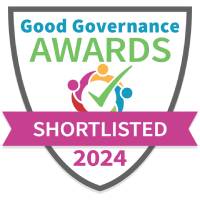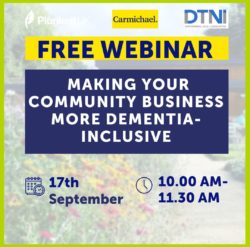Target Audience
For anyone needing to make the most of their time in a busy work environment.
Course Outline
The psychology of time management
- Self awareness of your own time management skills
Arrange and prioritise tasks
- How to prioritise
- What are your time wasters
- The advantages and disadvantages of multi-tasking
Strategies to improve time management
- Urgent vs non urgent
- Focus
Other tips
- Managers need to be aware too
- Effective communication and time management
- Stress management
Methodology
Delivered virtually via Zoom.
Target Audience
This course will be beneficial for chairs of boards, CEOs, senior managers leading executive teams, officers engaging in community outreach, education/training workers, and staff leading meetings.
Outline
In this workshop you will be introduced to methodologies, tools and techniques for effective online facilitation. The workshop includes live demos of interactive collaborative tools which will save you time and provide skills to bring your events alive.
Methodology
Delivered online via Zoom.
Target Audience
Anyone involved in advocacy or looking to influence policy or legislation in an area of work relevant to their non-profit organisation.
Outline
Ever wondered how can our organisation secure a legislative or policy win? This workshop has been developed to share an insider-outsider perspective on how to succeed in influencing policy or legislative change for your organisation. The workshop will inform and provide a practical roadmap.
Overview of workshop
Part 1: Understanding – knowledge building
- The Oireachtas
- The legislative calendar and process
- Seanad Commencement Matters and Dáil Topical Issues
- Parliamentary Questions
- Tips on how to inform and influence TDs and Senators
Part 2: Influencing – how to effect change
- Defining your issue and policy/legislative solution
- Setting goals and objectives
- Identify the target audience and who to influence
- Stakeholder mapping and building partnerships/alliances
- Creating effective communications
Ending: Questions and Answers – draw on Jillian’s expertise for your organisations’ campaign.
Methodology
Delivered virtually via Zoom.
Target Audience
This course is aimed at people who already have some experience with digital fundraising/marketing in charities and not-for-profit organisations. Preferably, people who have been doing digital for 4 years or more.
Outline
1. Introduction:
What is digital fundraising, and why is it important?
The pros and cons of digital fundraising
2. Case Studies
3. Steps to Follow When Creating a Digital Fundraising Campaign:
- Review past strategies and results.
- Set goals and KPIs – What does your charity want to achieve? Work backward from there.
- Ensure your digital fundraising strategy resonates with your donors.
- Create a communication plan that aligns with your strategy.
- Identify all relevant channels.
- Choose the right tools for your strategic fundraising plan.
- Engage and cultivate relationships with your donors throughout the campaign.
- Measure and track performance.
- Review the campaign’s performance.
4. Q&A to Finish
Methodology
Delivered online via Zoom.
Target Audience
Board Members, CEOs and Finance Managers of Charities.
Outline
SORP requirements for Charities and the responsibilities of the Board of Directors under the Charities Act.
The main areas covered will be:
- What are the responsibilities of the Board of Directors under the Charities Act
- What are SORP’s (Statements of Recommend Practice)
- What is the purpose of SORP
- Why are they necessary in charity financial reporting
- What are the requirements of SORP for Charities
- What is the connection between the Charities Act 2009 and SORP
- What are the key requirements of SORP FRS102 (latest SORP)
- How to lay out Financial Annual Accounts in SORP Format
- What is a Statement of Financial Activities (SOFA) and how to construct it
- The rules on Income recognition under SORP
- The rules of allocation Overheads by Charity Activity
- What is happening in the Regulators office for implementing a SORP in Ireland
- Latest information on the consultation process
- What is an Activity Report which is required from all charities regardless of size.
Methodology
Delivered virtually via Zoom.
Target Audience
Managers and staff of charities and not-for-profits.
Outline
This training course is designed to engage non-technical management and staff of charities and non-profits, helping them understand the importance of preparing to handle a cyber security incident. The topics are presented in a practical and accessible manner to inspire confidence in the attendees that they would have the ability to handle an unexpected incident.
1. Introduction
a) What is incident response?
b) Why is it important for charities and non-profits?
c) Common types of incidents that such organisations face
d) The benefits of having an incident response plan
2. Planning for Incidents
a) Identifying your organisation’s assets and risks
b) Developing incident response procedures and playbooks
c) Assembling an incident response team
d) Testing your incident response plan
3. Responding to Incidents
a) Review of the incident response plan template
b) Detecting and analysing incidents
c) Containing and eradicating incidents, by using playbooks
d) Carrying out risk assessments
e) Recovering from incidents
f) Communicating with stakeholders during an incident
4. Conclusion
a) Best practices for incident response
b) Resources for charities and non-profits
Methodology
Delivered virtually via Google Meet. It will be an interactive workshop, including a breakout room for participants to see how they would respond to a particular scenario. A copy of the slides will be provided as well as a link to download an incident response plan template and a couple of example playbooks.
Target Audience
Managers and staff of charities and not-for-profits.
Outline
This training course is designed to engage non-technical management and staff of charities and non-profits, helping them understand the importance of Business Continuity Planning (BCP) with IT Disaster Recovery (ITDRP). These are also referred to as Business Resilience Planning in other sectors.
This planning is essential in safeguarding organisations from wide ranging, catastrophic events which would have a significant impact on the continuing operation of charities and non-profits. The topics are presented in a practical and accessible manner so the attendees would have the ability to put in place the requisite plans to handle a crisis event, cyber security related or otherwise.
1) Introduction
a) What is Business Continuity Planning?
b) The elements of continuity planning:
-
- Business Impact Analysis (BIA)
- Business Continuity Plan (BCP)
- IT Disaster Recovery Plan (ITDRP)
c) Why are these important for charities?
d) Common risks for charities
e) The benefits of having business continuity and IT disaster recovery plans
2) Planning for Continuity
a) Identifying your organisation’s critical functions
b) Analysing the risks to these critical functions using an BIA
c) Developing business continuity and IT disaster recovery plans from the BIA
d) Best practices for testing your plans
3) Responding to Crises
a) Activating your business continuity and IT disaster recovery plans
b) Managing the crisis
c) Communicating with stakeholders during a crisis
d) Recovering from the crisis
Methodology
Delivered virtually via Google Meet. It will be an interactive workshop, including a breakout room for participants to see how they would assess their own risks and then plan for that scenario. A copy of the slides will be provided as well as a link to download templates for Business Impact Analysis (BIA), Business Continuity Plan (BCP) and IT Disaster Recovery Plan (ITDRP).
Please note this course will take place again on 28th May
Target Audience
Anyone involved in advocacy or looking to influence policy or legislation in an area of work relevant to their non-profit organisation.
Outline
Ever wondered how can our organisation secure a legislative or policy win? This workshop has been developed to share an insider-outsider perspective on how to succeed in influencing policy or legislative change for your organisation. The workshop will inform and provide a practical roadmap.
Overview of workshop
Part 1: Understanding – knowledge building
- The Oireachtas
- The legislative calendar and process
- Seanad Commencement Matters and Dáil Topical Issues
- Parliamentary Questions
- Tips on how to inform and influence TDs and Senators
Part 2: Influencing – how to effect change
- Defining your issue and policy/legislative solution
- Setting goals and objectives
- Identify the target audience and who to influence
- Stakeholder mapping and building partnerships/alliances
- Creating effective communications
Ending: Questions and Answers – draw on Jillian’s expertise for your organisations’ campaign.
Methodology
Delivered virtually via Zoom.
Target Audience
This course will be beneficial for chairs of boards, CEOs, senior managers leading executive teams, officers engaging in community outreach, education/training workers, and staff leading meetings.
Outline
Effective facilitation can lead to clearer focus and purposeful action. In this workshop you will be introduced to methodologies, tools and techniques to design and deliver engaging events and meetings, as well as some tips for overcoming facilitation challenges.
Methodology
Delivered online via Zoom.
Target Audience
This Facebook Ads for beginners, covers everything you need to know in order to get started with Facebook Ad campaigns the right way. This course will cut through all the fog and give you a clear guide to exactly what you need to do in order to get your first Facebook Ad campaign up and running. You’ll learn how to set up your Facebook account, find your ideal audience, avoid common mistakes and more.
This course is most likely suitable for staff from medium/large organisations. There is a fee for Facebook advertising.
Outline
- How to set up a Facebook Business Manager and Ad Account.
- Learn ways of protecting your ad account by complying with Facebook ad policies.
- List the steps need to launch your first Facebook ads campaign.
- Ways to test your first Facebook campaign.
- Describe ways create your ideal audience.
- List different types of Facebook ads and learn which works best.
- Avoid common mistakes made by new advertisers.
- Select and develop unique and eye-catching ad images.
- Ways to make appealing ad headlines and text.
Methodology
Online via Zoom.


